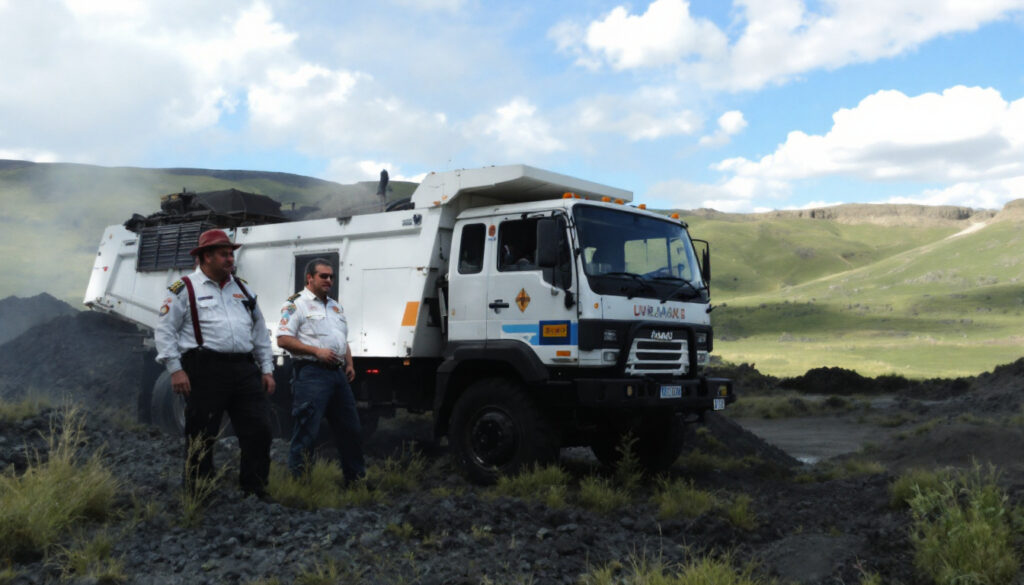Niger's Uranium Industry Under Pressure: Security Forces Target Orano Operations
Niger's uranium mining sector faces escalating tensions as security forces increasingly target foreign operations. This report analyzes recent actions against French nuclear company Orano, examining operational disruptions, geopolitical shifts in the Sahel region, and implications for global uranium markets. The May 2024 searches of Orano facilities, asset seizures dating to December 2023, and a regional pattern of resource nationalism among military-led governments have created uncertainty in global uranium market volatility.
What Happened During the Security Forces' Search of Orano Offices in Niger?
Recent Security Intervention at Orano Subsidiaries
On May 5, 2024, Nigerien security forces conducted coordinated searches at multiple Orano subsidiaries in Niamey, including Somair, Cominak, and Orano Mining Niger. The operation resulted in the seizure of phones, computers, and other operational equipment critical to the company's activities.
During the raid, authorities arrested Ibrahim Courmo, Orano's Niger director, though the government has not publicly disclosed specific charges against him. The comprehensive nature of the searches suggests a planned operation targeting all aspects of Orano's in-country presence.
The intervention occurred in a context of deteriorating relations between Niger's military government and the French nuclear company, following months of escalating tensions over resource control and sovereignty issues.
Orano's Response to the Situation
In an official statement following the raids, Orano confirmed having "very limited" information about the specifics of the security operation. The company expressed particular concern about being unable to contact their Niger representative, Ibrahim Courmo, highlighting communication breakdowns with local authorities.
"We are deeply concerned about our inability to communicate with our Niger director and lack clarity about the legal basis for these searches," an Orano spokesperson noted in their statement to international media.
The French nuclear firm acknowledged that it had already lost effective operational control of its subsidiaries since December 2023, when Niger's military government first moved to assert control over uranium mining operations. This latest development represents a further deterioration in the company's position in the country.
Orano continues to maintain nominal ownership stakes in its Niger operations but has effectively lost managerial oversight and day-to-day control of mining activities at both the Somair and Imouraren facilities.
How Does This Incident Fit Into Niger's Changing Stance on Foreign Mining Companies?
Timeline of Niger's Actions Against Orano
Niger's assertive resource policy has unfolded through a series of calculated moves against foreign mining interests:
- December 4, 2023: Armed forces physically seized control of the Somair uranium mine, where Orano previously held approximately 63% ownership
- June 2024: Authorities revoked Orano's mining permit for its Imouraren subsidiary, effectively canceling development rights for one of Africa's largest uranium deposits
- May 5, 2024: Security forces conducted searches at multiple Orano subsidiaries in Niamey
- July 2024: The government terminated Canadian firm GoviEx Uranium's development rights to a major uranium project
These sequential actions demonstrate a systematic approach to restructuring foreign participation in Niger's mining sector, particularly targeting French interests that have dominated uranium mining halt since the 1970s.
Broader Pattern of Resource Nationalism in the Sahel Region
Niger's actions mirror similar resource nationalism movements in neighboring Mali and Burkina Faso, forming a coordinated regional trend. All three countries now operate under military governments that seized power between 2020-2023, each implementing comparable policies toward foreign mining companies.
Mali's military authorities have arrested foreign mining executives and seized gold stocks during contract renegotiations, while Burkina Faso's junta announced comprehensive plans in April 2024 to take control of multiple foreign-owned industrial mines.
The three nations formalized their cooperation through the Alliance of Sahel States, coordinating resource policies and security arrangements outside traditional Western-aligned frameworks. Their parallel approaches to mining sector reform suggest strategic coordination rather than coincidental policy shifts.
This resource nationalism aligns with broader geopolitical realignment in the region, as all three countries have expelled French military forces and pivoted toward Russia for security partnerships. The changing stance on mining investments appears connected to this larger strategic reorientation away from Western influence.
"We are witnessing the most significant restructuring of mining ownership in the Sahel since the post-colonial period," notes regional mining analyst Abdoulaye Maiga. "These coordinated actions reflect a fundamental shift in how these countries view their mineral wealth and sovereignty."
Why Are Sahel Countries Increasing Pressure on Foreign Mining Companies?
Political Shifts Driving Resource Control
The military governments in Niger, Mali, and Burkina Faso have positioned resource nationalism as a cornerstone of their legitimacy, framing mining sector reforms as reclaiming sovereignty from foreign interests. This narrative resonates domestically, where citizens have long questioned the economic benefits of foreign-dominated extractive industries.
In public speeches, Niger's junta leader General Abdourahamane Tiani has repeatedly emphasized the need to "decolonize" the uranium sector, citing the disproportionate flow of profits to foreign shareholders while local communities see minimal benefits. The government's "Sovereign Mineral Strategy" published in early 2024 mandates majority state ownership in all extractive projects, representing a fundamental shift from previous arrangements.
The militaries justify their interventions in mining as addressing historical inequities in contract terms. Analysts point to concession agreements signed in the 1960s and 1970s that allocated just 15-20% of uranium revenues to Niger compared to 45-50% in comparable Canadian uranium operations.
This political positioning aligns with broader anti-Western sentiment that has fueled public support for military takeovers across the region. By targeting prominent Western companies like Orano, the juntas reinforce their nationalist credentials while establishing new partnerships with alternative powers like Russia and China.
Economic Motivations Behind Mining Sector Changes
Beyond political considerations, Sahel countries face urgent economic pressures driving their resource control efforts:
- Fiscal constraints: Post-coup governments inherited severely strained budgets, with Niger's foreign debt exceeding 50% of GDP in 2024 according to World Bank estimates
- Commodity price fluctuations: Uranium prices have surged approximately 300% since 2021 due to growing global nuclear energy demand
- Budget shortfalls: Military spending increases have created fiscal gaps that mining revenue could potentially fill
- Development needs: Chronic infrastructure deficits require substantial investment that resource wealth could theoretically support
The timing of these interventions coincides with significant price increases in uranium markets, suggesting opportunistic economic calculations. With uranium reaching $106 per pound in Q2 2024—the highest level since the 2011 Fukushima disaster—existing contracts appear increasingly unfavorable to producer countries.
Niger's military leaders have specifically highlighted the disparity between rising market prices and fixed-rate historical contracts that lock in lower returns for the country. By renegotiating terms in the current high-price environment, they aim to capture a substantially larger share of the $5.2 billion global uranium market.
What Are the Implications for International Mining Operations in the Region?
Challenges for Foreign Mining Companies
Companies operating in the Sahel now face unprecedented operational and financial challenges:
- Security costs: Protection expenses have increased approximately 400% for remaining foreign operators, with private security contractors charging premium rates for high-risk deployments
- Operational uncertainty: Day-to-day management has become unpredictable, with companies reporting frequent interference from government intervention examples
- Asset protection concerns: The risk of physical seizure of equipment, facilities, or product stockpiles has dramatically altered risk assessments
- Personnel safety: Executive detentions create significant duty-of-care concerns for foreign staff
- Supply chain disruptions: Transportation and logistics networks face regular interruptions due to security issues and administrative interference
- Project timeline extensions: Permit uncertainties have extended development timelines by 18-24 months for projects still moving forward
- Insurance complications: Premiums have tripled for Sahel-based mining ventures, with some risks becoming uninsurable
The financial impact is substantial, with Orano's Imouraren project suspension alone costing the company an estimated $720 million in projected 2024 revenue—representing approximately 12% of its anticipated global uranium output.
Companies must now navigate complex stakeholder relationships while facing unprecedented political risk. Many have implemented crisis management protocols, including evacuation plans for expatriate staff and contingencies for potential asset nationalizations.
Impact on Global Uranium Markets
The disruption of Niger's uranium production has significant implications for global supply chains and energy security:
| Year | Niger Production (tonnes) | % of Global Supply | Impact on Global Price |
|---|---|---|---|
| 2021 | 2,800 | 5.8% | Minimal |
| 2022 | 2,500 | 5.1% | +10% |
| 2023 | 1,800 | 3.6% | +45% |
| 2024 | 1,200 (projected) | 2.4% | +72% |
Niger's production declines from approximately 3,000 tonnes to an estimated 1,200 tonnes annually since 2023 have compounded supply constraints from Kazakhstan's 2024 export quotas. Together, these disruptions affect nearly 10% of global uranium supply just as nuclear energy capacity is expanding.
The timing is particularly problematic for global energy markets, as more than 60 countries have announced nuclear power expansion plans at the 2023 COP28 climate conference. Supply shortfalls could potentially delay 24 planned reactors worldwide, each requiring a share of the 8,000 tonnes of additional annual uranium supply needed for global expansion targets.
Utilities and fuel fabricators have responded by increasing inventory stockpiles, further driving spot prices upward and creating a feedback loop of price volatility. Market experts project continued price pressure through 2026, potentially jeopardizing the economic viability of nuclear energy expansion in Europe and Asia.
"The Niger situation represents a critical inflection point for nuclear fuel supply chains," explains energy analyst Maria Korsnick. "Coming at a time when nuclear power is increasingly viewed as essential for climate goals, these disruptions could significantly impact global decarbonization timelines."
FAQ: Niger's Actions Against Foreign Mining Companies
What is Orano's history in Niger?
Orano (formerly Areva) has operated in Niger since 1971, when it established the Somair joint venture as the country's first commercial uranium mine. Over five decades, the company has produced more than 120,000 tonnes of yellowcake from Nigerien deposits, maintaining majority ownership while partnering with the government's mining company. The French nuclear firm expanded operations through the Cominak venture (now closed) and development of the Imouraren deposit, which contains one of Africa's largest uranium reserves.
How have other mining companies been affected by Niger's policy changes?
Multiple foreign mining companies have faced similar challenges under Niger's new mining regime. Canada's GoviEx Uranium lost development rights to its Madaouela project in July 2024 despite having invested over $100 million in exploration and permitting. Australian junior miners have suspended exploration activities entirely, with several surrendering licenses rather than operating in the current environment. Even Chinese companies, which initially appeared exempt from resource nationalism measures, now report increased scrutiny and permit delays, contributing to overall US uranium disruption.
What broader political context is driving these actions?
These resource control moves occur against a backdrop of regional instability and geopolitical realignment. All three Sahel military governments came to power promising to combat both jihadist insurgencies and what they characterize as Western economic exploitation. Their pivot away from France—the former colonial power—has coincided with deeper relationships with Russia's Wagner Group (now Africa Corps) and increased Chinese investment.
The military leaders frame resource nationalism as addressing colonial-era inequities in natural resource governance. Public opinion polls show strong domestic support for increased state control of mining assets, particularly in uranium-producing regions where local development has lagged despite decades of extraction.
What might be the long-term consequences for international investment in the region?
The current trend of resource nationalism will likely reshape investment patterns across the Sahel for years to come. Mining executives report that capital allocation models now apply "sovereign risk premiums" of 15-20% to Sahel projects, effectively making many marginal deposits uneconomical. Major mining houses have largely suspended exploration programs in the region, focusing instead on established mining jurisdictions in Southern Africa and the Americas.
Alternative mining destinations including Botswana and Namibia have seen increased uranium exploration activity as companies seek more stable environments, though these face 3-5 year development timelines and higher extraction costs compared to Niger's established operations.
For the Sahel countries themselves, the long-term economic consequences remain uncertain. While increased state control may deliver short-term revenue gains, concerns exist about technical capacity, access to capital for development, and sustainable operation of complex mining facilities. The outcome will likely depend on whether these countries can attract new investment partners while maintaining operational efficiency during this transition period of mining industry evolution.
Looking for the Next Major Mineral Discovery?
Stay ahead of the market with Discovery Alert's proprietary Discovery IQ model, which delivers instant notifications on significant ASX mineral discoveries and transforms complex data into actionable insights. Visit Discovery Alert's dedicated discoveries page to understand why major mineral discoveries can lead to substantial market returns.




